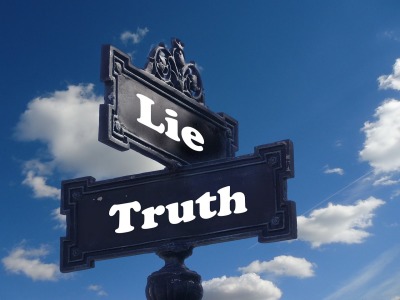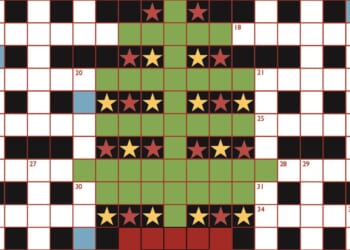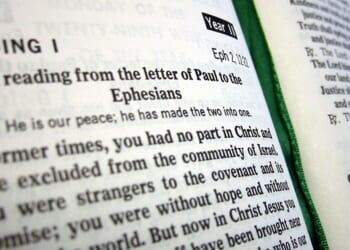
We hear it everywhere: “Find your truth.” It’s splashed across social media, stitched into graduation speeches, and carried like a badge of freedom in modern culture.
At first glance, it sounds empowering — finally, a way to honor your story, to be seen, to be heard. And that matters. History is filled with voices that were silenced, experiences dismissed. There’s something profoundly healing about being allowed to speak honestly. But somewhere along the way, the phrase shifted.
“Find your truth” is no longer about honesty — it’s about authority. It doesn’t just encourage self-expression; it commands you to build a worldview from the inside out, as if your private sense of self could bear the weight of defining reality. It sounds poetic. But in practice, it’s like asking a ship to navigate the seas by staring at its own reflection in the water. Sooner or later, you run aground. Because if everyone has their own truth, then truth itself dissolves. And when your truth collides with mine, who bends? Who wins? Who gets hurt?
When life breaks down — and it always does — affirmation won’t hold you together. You don’t just need a voice; you need an anchor.
This is where Scripture enters — not as folklore or moral code, but as something that claims to be objective truth, rooted outside of us. Scholars have made their case for this. They’ll point to the mountains of manuscript evidence, the precision of transmission across centuries, the corroboration of archaeological discoveries, and the fulfilled prophecies that defy probability. They’ll argue, rightly, that the Bible stands as the most historically reliable ancient document we possess. That is a compelling defense. But it’s not the only one.
I’m not approaching the Bible as an archaeologist cataloging fragments, or as a historian piecing together timelines. I’m approaching it as a psychologist who has sat in counseling rooms with people whose lives have collapsed under the unbearable weight of self-invention. And from that vantage point, what strikes me most is not only that the Bible is historically true — but that it is existentially true. It doesn’t simply claim facts; it reads the human condition with a clarity that no theory, model, or framework can match. I’ve studied Freud, Jung, behaviorism, attachment theory, neurobiology. Each gives us part of the picture. But the Bible speaks as if it knows the whole person.
Take guilt. Psychology often reframes guilt as a distortion to be silenced. But what if guilt isn’t a malfunction, but evidence that something real has been fractured? David voices it plainly: “Against you, you only, have I sinned”(Psalm 51:4). That isn’t pathology — it’s moral clarity. And the Bible doesn’t stop there. It names guilt, then offers what no therapy can: a verdict of forgiveness.“ There is now no condemnation for those who are in Christ Jesus” (Romans 8:1). Shame tells the same story. It hides behind perfectionism and withdrawal, whispering, “I’m not enough.” Genesis 3 describes it perfectly: fig leaves, hiding, distance. And yet the Bible does what no self-help manual can. It acknowledges shame without excusing it, then covers it without denial: “Those who look to him are radiant; their faces are never covered with shame”(Psalm 34:5).
Fear? Psychology explains it as biology, but Scripture sees it deeper. Our deepest fears are existential — judgment, abandonment, death. The first recorded words after the fall still ring: “I was afraid … so I hid”(Genesis 3:10). Into that fear, God speaks not clichés but presence: “Do not fear, for I am with you” (Isaiah 41:10). Even hope takes on new meaning. Culture reduces it to optimism — fragile, circumstantial. Scripture calls it “an anchor for the soul, firm and secure” (Hebrews 6:19). This is not sentiment but substance: “Suffering produces perseverance; perseverance, character; and character, hope” (Romans 5:3–5). And love — the word most overused in our age — is not left vague. It is defined by a cross. “This is how we know what love is: Jesus Christ laid down his life for us” (1 John 3:16). Not emotion, but sacrifice. Not abstraction, but blood.
And here’s where the apologetic force becomes unavoidable. People don’t often walk away from Scripture because they’ve weighed manuscript evidence and found it lacking. The evidence is overwhelming. They walk away because the Bible tells the truth about them too precisely. We expected affirmation. What we received was exposure. And when that happens, the resistance isn’t academic — it’s personal. The Bible doesn’t feel like a book we’re reading; it feels like a book reading us. It presses against our pride, our control, our desire to define good and evil on our own terms. That’s why walking away can feel like freedom, though in reality it’s only a trade — exchanging God’s authority for our own.
The irony is that our very rejection of Scripture often proves its point. It not only predicts our resistance, it interprets it. It doesn’t just describe sin in the abstract — it reveals it in real time. It doesn’t simply announce grace — it shows us why we desperately need it. That’s why the question isn’t only “Is the Bible true?” but “Why does this kind of truth make us so uncomfortable?”
The Bible endures because it tells the truth about God and about us — more honestly than we want, yet more tenderly than we expect. It names our guilt, shame, fear, and longing with unsettling precision, and then offers forgiveness, covering, presence, hope, and love. It is not merely a relic to be studied, nor a slogan to be hashtagged, but the one truth that does not shift with culture. The one truth you don’t have to invent. The one truth you can finally rest in. Stop searching for “your truth.”
The real one has already found you.
Dr. David Zuccolotto is a former pastor and clinical psychologist. For 35 years he has worked for hospitals, addiction treatment centers, outpatient clinics and private practice. He is the author of The Love of God: A 70 Day Journey of Forgiveness.

















